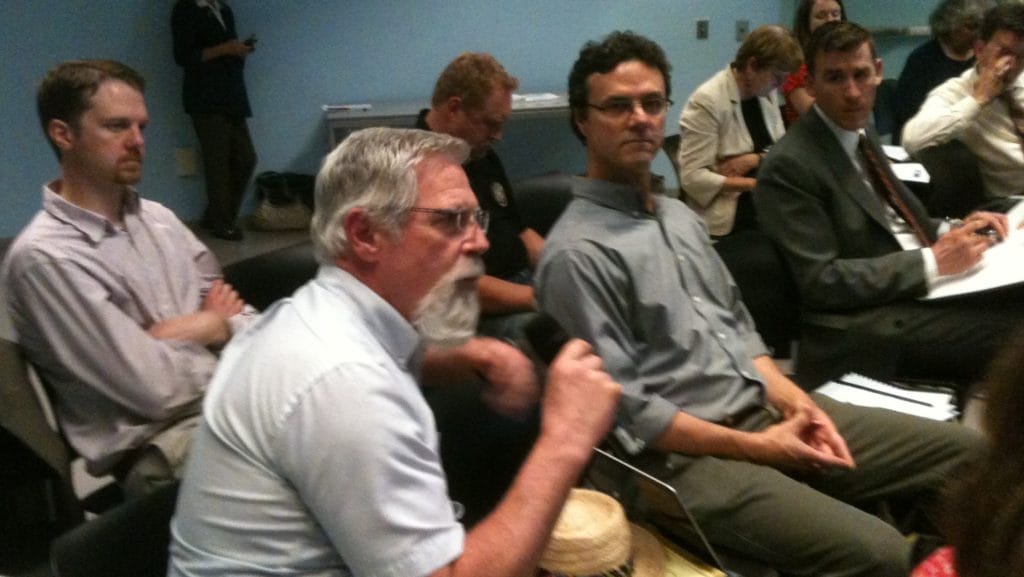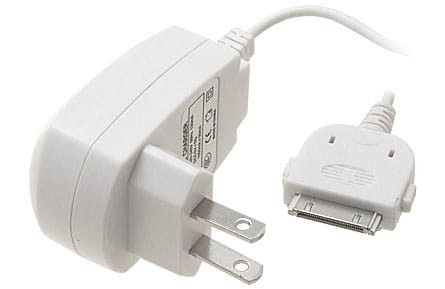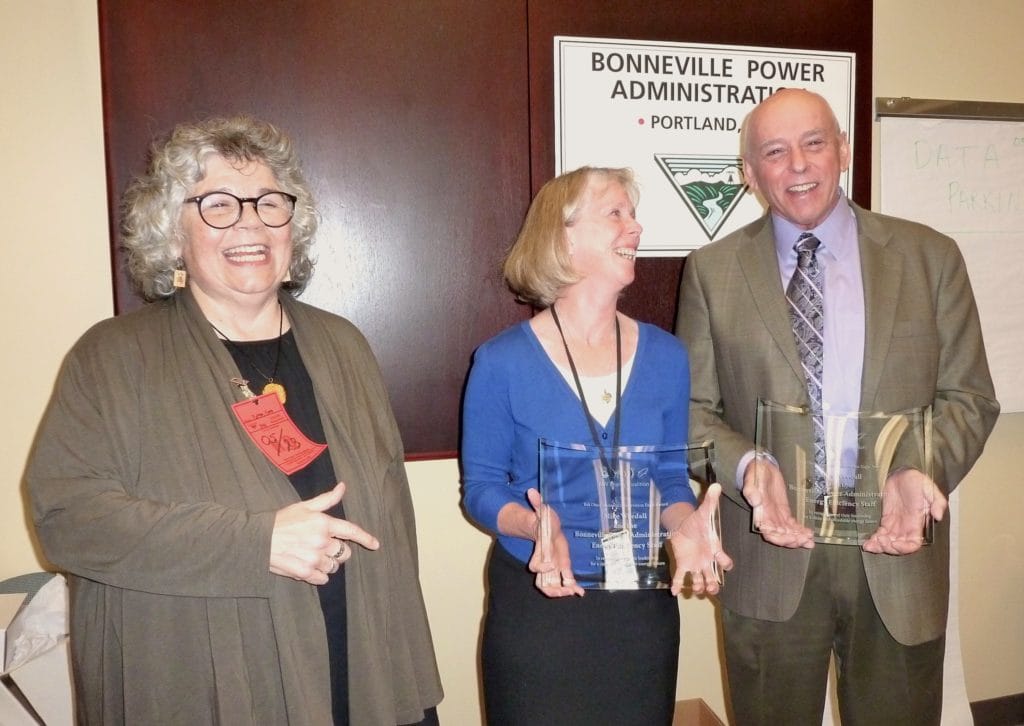News
Rousing celebration notes success of I-937
The NW Energy Coalition’s July 31 celebration of Washington state’s Clean Energy Initiative truly was a grand success. Former King County Executive Ron Sims gave a touching and eloquent keynote speech highlighting the Coalition’s unique ability to bring diverse voices together and Coalition senior policy associate Danielle Dixon presented the details of progress on I-937, which passed by public vote in 2006…
Seattle public meeting delivers clear message to BPA: Boost energy efficiency, low-income assistance budgets
Clean energy advocates told Bonneville Power Administration officials that the agency’s proposed 2014-15 budget falls short on energy efficiency funding and fails to address the growing needs of low-income energy users across the region.
The only general public meeting on BPA’s budget-setting Integrated Program Review (IPR) process took place Aug. 2 in Seattle.
Battery charger standards in contention
A broad coalition of energy efficiency, environmental, and public interest organizations, consumer groups, and energy providers (including the NW Energy Coalition) sent a letter today encouraging the Department of Energy to strengthen the proposed efficiency standards for battery chargers. DOE’s initial proposal sacrifices hundreds of millions of dollars in energy savings and seriously risks increasing national energy use and greenhouse gas emissions compared to simply permitting state standards to continue to exist.
The Olympian: 9th circuit upholds state code for home-energy use
In an apparent defeat for the Building Industry Association of Washington, the 9th Circuit Court of Appeals has upheld a federal court ruling in favor of the State Building Codes Council over standards for increasing the energy efficiency of homes that it adopted in 2009. The NW Energy Coalition, Sierra Club, Natural Resources Defense Council and Washington Environmental Council intervened in defense of the higher energy standards.
Sam Garst receives Coalition's highest award
Sam Garst was awarded the prestigious Headwaters Award for his work as the top signature gatherer for Initiative 937
Coalition congratulates Flathead Electric Cooperative and Snohomish County PUD for energy efficiency awards
The NW Energy Coalition would like to congratulate Flathead Electric Cooperative and Snohomish County PUD for receiving a well-deserved Excellence in Energy Efficiency Award from the Bonneville Power Administration. We applaud and appreciate their regional leadership in energy efficiency and a low carbon future!
NW Energy Coalition praises conservation goal in Oregon governor’s draft 10-year energy plan
Gov. John Kitzhaber’s draft plan, released today, calls for meeting 100% of new power needs by getting more out of the power we already produce. That goal exceeds the 85% efficiency target established in 2010 by the region’s official power planning agency, the Northwest Power and Conservation Council.
“While the draft plan goal exceeds the Council’s region-wide target, it’s a practical goal that accurately reflects Oregon utilities’ ongoing achievements,” said NW Energy Coalition senior policy associate Wendy Gerlitz of Portland.
Mike Weedall, BPA efficiency staff receive prestigious clean energy award
Recently retired Bonneville Power Administration Vice President of Energy Efficiency Mike Weedall and BPA’s entire energy efficiency staff have been honored for their leadership in advancing the region’s clean and affordable energy future. The NW Energy Coalition bestowed its highest annual award, Bob Olsen Conservation Eagle, to Weedall and BPA’s energy efficiency staff during a brief ceremony Wednesday at BPA’s Portland headquarters.
From the Flathead Beacon: Panel Discusses Importance and Challenges of Energy Efficiency
The NW Energy Coalition, a clean energy policy advocacy association, held its semiannual conference on May 18 at the Red Lion Hotel. The “NW Clean and Affordable Energy Conference” featured three panels: clean and affordable energy in the Flathead Valley, renewable energy standards in the Northwest and the future of coal mining and export in the West. Bill Drummond of the Bonneville Power Administration was the keynote speaker…
New Clothes Washer and Dishwasher Standards Will Save Consumers Loads of Money, Protect the Environment
Energy and water efficiency standards released today by the U.S. Department of Energy (DOE) will deliver clothes washers that use as much as 35 percent less energy and water and dishwashers that use about 14 percent less energy and 23 percent less water.
That means lower utility bills for consumers and big environmental benefits for us all – without sacrificing any of the cleaning performance consumers count on, according to a coalition of consumer, energy and environmental groups.











